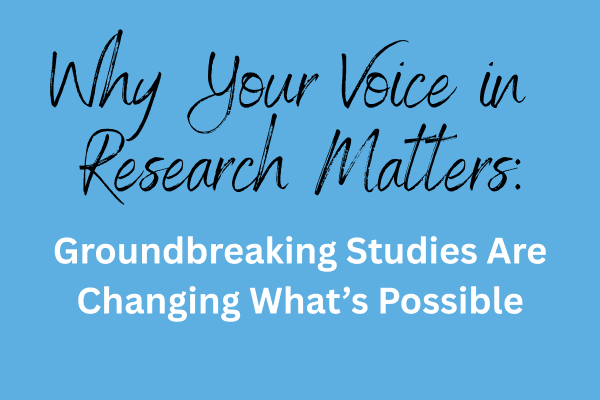Acknowledgement: Patient Worthy is honored to be a media partner of the National Organization for Rare Disorders (NORD). The mission of NORD is to improve the health and well-being of people with rare diseases by driving advances in care, research and policy. Patient Worthy is grateful to share this story on behalf of NORD. To learn more about NORD, please go here.
When Jonas was just a baby, his doctors already knew to look for signs of tuberous sclerosis complex (TSC). It ran in the family—and had for generations.
His aunt was the first to be diagnosed in the 1980s when she developed a brain tumor. Testing showed that Jonas’ grandfather, father, other relatives, and Jonas also carried the mutation. Since then, three generations of his family have not only lived with TSC, but they’ve also actively contributed to research on this rare genetic disorder where non-cancerous tumors form in various organs such as skin, brain, and kidneys.
Jonas’ family has joined in several TSC studies across the country over the past several years. Other relatives not impacted by TSC have volunteered as control subjects. Jonas, now a microbiology PhD candidate, even interned at a lab in Switzerland to study the genes that shaped his family’s medical journey.
“With a rare disease, it’s easy to focus on everything you don’t have, but my family has always felt a duty to give back, and we feel fortunate that we can. Today’s knowledge and interventions are only possible because others chose to participate,” said Jonas.
His family’s story shows the ripple effect created when people add their voices to research. That goal is at the heart of two national initiatives that are creating new opportunities for every rare disease patient to contribute their unique experience to science, potentially changing outcomes for future generations.
Two Studies. One Shared Goal.
The Living Rare Study and the All of Us Research Program are each designed to gather vital health information from different perspectives. Both efforts aim to create a fuller, more human picture of health, whether that’s unlocking crucial information from our DNA to understanding how rare diseases impact daily life.
- The Living Rare Study collects real-world insights directly from rare disease patients and caregivers to improve advocacy and support services.
- The All of Us Research Program is a historic effort to collect and study data from one million or more people living in the United States – including those living with rare diseases.
Living Rare: Turning Experience into Evidence
Today, no national data source truly reflects the day-to-day, emotional, and financial toll that rare diseases take on patients and families. The Living Rare Study, launched by the National Organization for Rare Disorders (NORD®), is designed to change that.
Founded in 1983, NORD has forged deep relationships with the more than 30 million Americans living with rare disease as well as the researchers and doctors who study, diagnose, and treat rare disease. Built with input from patients and caregivers, this multi-year observational study asks patients to share their experiences with the following:
- Navigating the health care system
- Access to treatments and services
- Mental health and emotional well-being
- Financial burden and social support
- How needs evolve over time
NORD’s goal for the Living Rare Study is to turn lived experience into actionable insights that can inform public health policy, improve support services, and advocate for change.
“I’ll never forget my first patient parent who taught me that rare families have a wealth of emotional insights and medical knowledge vital to research,” said Eva Morava, MD, PhD, a rare disease researcher and pediatrician at the Icahn School of Medicine at New York’s Mount Sinai Health System, one of the top U.S. medical institutions focused on rare disorders. “All patient stories are important.”
All of Us: Building a Future of Precision Medicine
The All of Us Research Program, overseen by the National Institutes of Health (NIH), is a historic effort to accelerate research that may improve health by gathering data from one million or more people living in the United States. By taking into account individual differences in lifestyle, environment, and biology, researchers will have the information to better understand health and disease.
For Gus, the All of Us Research Program is not just a hope for medical breakthroughs in the future. It’s a way to make every day count now. When Gus learned that he had the rare neurodegenerative disorder amyotrophic lateral sclerosis (ALS), Gus refused to be told there was “nothing to do.” Instead, he became a participant ambassador, encouraging others to join. “When a person feels like they have purpose,” he says, “it makes a big difference.”
Researchers can use the data to better understand health and disease. This could:
• Identify risk factors for certain diseases
• Join people with the right clinical studies
• Figure out which treatments work for different types of people
• Explore how technology can encourage people to take better care of their health
When you join the All of Us Research Program, you may help researchers learn about heart disease, diabetes, cancer, ALS, asthma, and many more of the diseases and genetic conditions that affect us.
“By truly listening to participants like me,” Gus said, “the program is already winning. If everyone shares in an idea, that’s a huge success. We’re all in this together.”
Your Story Matters—More Than Ever
Whether it’s through a long-term observational survey like Living Rare, or a large-scale genomic and lifestyle study like All of Us, your voice in research matters.
“When you contribute to research, it will make a difference. It might not be tomorrow. It might not be next year. But it will change someone’s future,” said Jonas.
The Future of Rare Diseases Starts with You
- Join the Living Rare Study
- Join All of Us






